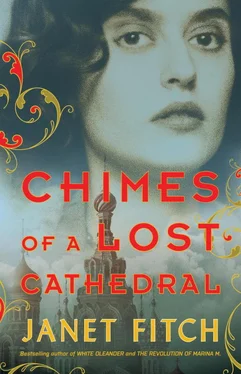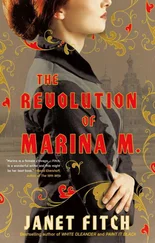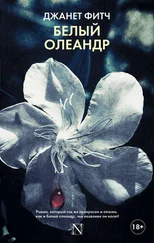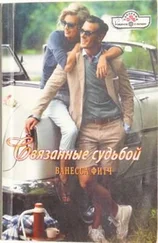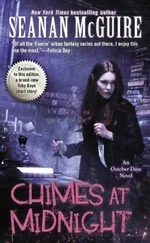Perhaps the boy I’d been—Misha, that cheeky lad—would have chanced it. He had his way of staying afloat, but I couldn’t conjure him now, not with the child on the way, my face gone round, my breasts past binding. I was a woman in full and there was no escaping it.
Wisdom does not consist of making the best choice among many. Wisdom is understanding when there is no choice and taking the step that must be taken, without complaints or sighs. Hoisting my small bag higher over my shoulder, I walked to the platform’s end and climbed down, strapped myself into my snowshoes, and followed the rails through the fog.
A switchman’s shack emerged from the milky white. I knocked at the poorly made door, the pearly gates of this sooty heaven, and swung it open without waiting for an invitation.
Inside, a blackened stove warmed the small hut—no better than a wooden crate—where four men seated on boxes played cards. The kettle boiled. Steam coated the one greasy window. But which was the switchman, the one in charge? Him, I decided—the bald one in spectacles, pencil behind ear. The other three, railwaymen: a pensioner—a little bantam cock—and two burly men, one missing an arm, his coat sleeve pinned up neatly. Firemen or mechanics, I thought, the one-armed man wounded in the line of duty, and still drawing rations. Oh, to be the boy Misha again! Misha would know how to talk to them. He would swear, tell a dirty joke. Eh, brothers! But trapped in this irrevocable female form, I had to appeal to mercy, if I could find it. I hated negotiating from weakness, but I could do it if I had to.
“Comrades. Forgive me.” I spoke quickly, holding my hands in the universal language of wheedling. “I don’t want to trouble you, but I don’t know where else to turn. My brother was a Vikzhel man, an assistant engineer. He said if I ever needed help, to turn to the railwaymen.” I rummaged in the sack and pulled out Misha’s papers, presented them to the switchman. “I lost my position, a cook in a boarding house. The woman’s daughter came home from Petrograd and took my place.”
The bald man peered at Misha’s documents. “Assistant engineer? It says he was fifteen years old.” He tried to hand them back to me but I shrank away. My fictional brother was Vikzhel, a union man. They took care of their own.
“He was a good boy.” I had no problem staining my face with tears. Poor Misha! “He gave me his pay. It kept us going. But he died, four weeks ago. Now I have nothing.”
The switchman held the papers awkwardly, he didn’t know what to do with them if I wouldn’t take them back. “So what do you want from us, little comrade? We can’t put you on as a fireman.”
The others chuckled. Oh, so funny. How I hated men who thought what a woman did was ridiculous, what a woman needed. I wished I could pull the gun from my pocket, show him who was ridiculous. But I had to bite my tongue. “I can shovel snow, keep the tracks clean,” I said, pushing on. “Cook, wash. Read. Look, I’m not asking for charity.” I drew myself up to my full height, trying to appear healthy and robust, not like a pregnant girl who’d been breathing her last calories through her metaphysical skin. “I can water trains. Clean the station.” That made them laugh—you were more likely to see a pig fly than a clean vokzal in Russia.
They exchanged glances as if they were passing cards. The old man pulled something from his pocket. “Here’s some chocolate, devushka . Take it. Don’t be shy.”
Now I felt bad that I’d wanted to shoot him. I took the chocolate and let it melt on my tongue like a consecration—dark and sweet, like a drug. Over the switchman’s shoulder, a calendar hung next to train schedules posted on nails. Its pages were roughly torn back to 28 Fevrail 1919. I counted the months on the roof of my mouth. March, April, May, June… The months had never felt so urgent. The burly man with one arm leaned back, hooked his cigarette in his mouth, and with the same hand, threw a card onto the little box that was their gaming table. “Maybe Raisa Filipovna could use her.”
The old fellow puffed out his cheeks, his eyes full of news. “That girl was already halfway out the door. Yulia. Bun in the oven, you ask me.” He cackled, oblivious of the insult he was offering.
The bald man flushed. Had he noticed my condition? “Pardon him, he’s our village idiot.”
“Who’s the idiot, you apparatchik.” The old fellow held up a bony fist. “ Burzhui bastard.”
The two-armed man threw a one-eyed jack. “You playing or what?”
Bun in the oven. I wished now I had a ring. Still, I could legitimately present myself as a married woman. Between the chocolate and the chance at work, I was already feeling hopeful. I licked the last of the sweet from my lips. “Where can I find this Raisa Filipovna?”
“A big wooden house on Orlovsky Street,” said the one-armed man. “Number 8. Korsakova’s her name. Tell her about your brother. She has the heart of a kitten. Tell her Styopa sent you.”
“I knew the husband,” said the old man. “A shame. Tomasovich.”
Styopa threw a card. I admired the dexterity with which he used his single hand. “A good man. Eternal memory.”
The bald man glanced up at his calendar, and tore the last page off to reveal 1 Mart 1919, opened the stove door and threw February into the fire.
I set out for Korsakova’s. I didn’t know Tikhvin well, only the station and the monastery, and the one inn where we used to stay on our way to Maryino. Where we’d stayed the summer of 1917, between the revolutions, when my father had sent us into the country, and Seryozha to the cadets. I asked directions of a woman who walked with the assured step of one who knew where she was going and was in no hurry to get there, and following her instructions, I passed Sovietskaya Street, Karl Marx Street, Svobodnaya Square— Freedom Square —a snow-clotted commons. The revolution had certainly brought its passion for renaming to Tikhvin, best known for its icon of the Virgin, and as the birthplace of the composer Rimsky-Korsakov, whose house my artistic mother liked to point out as our carriage jounced through the dusty streets on the way out of town. Korsakova —I wondered if the woman was some relation.
I found her house on a snow-filled lane—sagging but not the worst on the street, a big two-story wooden structure with a long balcony looking out upon other houses across the street, equally run-down but not so large. I rang the bell, tested the door. It was locked. It had started to snow again, but if I could spend a night in a blizzard in a forest halfway between nowhere and never, I guess I could wait in the doorway of a Tikhvin boarding house until the landlady came home.
Removing my snowshoes and tipping them up against the dark shingles, I took out Genya’s little book and reread his poems, hearing his voice, that concatenation of basso and boyishness:
I know what it’s like
to be fed paper
when what one needs is
I wondered if he still felt the same way. If I hadn’t left with my delightful man that night, if I’d met Genya after his avant-garde play, I might be in Moscow right now, surrounded by poets, instead of starving, pregnant, and looking for work in Tikhvin. It was too depressing to consider. I closed the book, ate the sausage in my satchel, a bit of bread. The doorway arched over my head. I touched the rough shingles. Would I have my baby here? Would Korsakova take me in? And if she didn’t, then what? Death was no conjecture these days, no distant rumor. It was all around, just waiting for me to make a false step. I thought of the romantic idiot who had once strolled among the graves at Petersburg’s noble Alexander Nevsky Monastery, imagining my own beautiful, famous corpse. My funeral procession, the inconsolable thousands who would carry me, the great poet, on their shoulders to my final resting place.
Читать дальше
